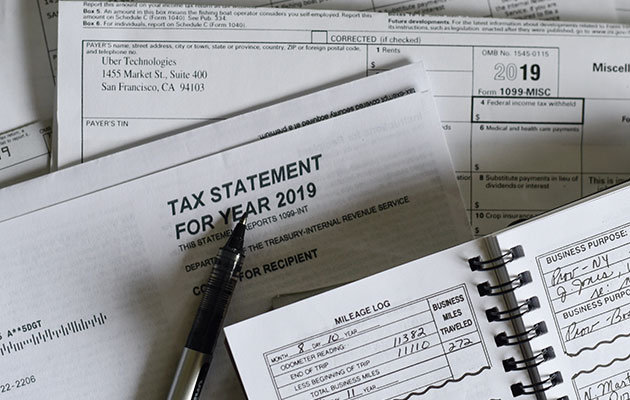-
Articles
Trade Competition Act In Thailand
The New Trade Competition Act (the “New Act”) was published in the Government Gazettes on 7 July 2017 and will become effective on 5 October 2017, i.e., 90 days after the publication date. The significant points of the New Act are as follows:
Regulator of Trade Competition
In the New Act, it specifies that the regulator of trade competition in Thailand will be independent. The Competition Commission (the “Commission”) shall be comprised of seven persons whose qualifications shall be, among others:
1. not holding or having held any position in a political party, or any institutions or associations that are made up of a group of entrepreneurs whose collective purpose or interest is commercial;
2. not working for a government agency or in the private sector, nor holding shares of more than 5% of the total shares in a company.
In addition, the Competition Commission will have its own operating budget. The Commission has the power to enact regulations, impose administrative fines and file a lawsuit with a court against any person who violates the New Act. Furthermore, the Commission may issue a written order requiring the business operator to suspend, cease or change behaviour that violates the New Act. The Commission may also publish its decisions to the public.
Subordinate Legislation
The current ministerial regulations, notifications and rules are still effective until the new ones are announced. Said announcement shall be made by no later than 365 days from the effective date of the New Act. All the rules and regulations shall be presented at a public hearing before the legislation becomes effective.
Penalty
The Trade Competition Act B.E. 2542 (1999) (the “Current Act”) specifies that any person who violates the ‘Abuse of Dominant Position’, a ‘cartel’, ‘unfair trade practice’ or an ‘unreasonable agreement with a business operator based abroad’ shall be subjected to criminal penalty. Such person shall be liable to imprisonment for a term not exceeding three years or to a criminal fine not exceeding Baht six million, or to both; and in the case of the repeated commission of the offence, such person shall be liable to double the penalty. In contrast, the New Act separates the penalty into criminal penalty and administrative penalty depending on the type of offences.
Meaning of Business Operator with Market Domination
The meaning of “business operator with market domination” in the New Act will mainly be on the market share and sales volume; the same as the meaning in the Current Act. However, the factor regarding the competitive condition of the market is further specified to be considered in the New Act. To consider the business operator’s market share, the market share of all companies which have a relationship in policy or control must be included in the New Act. The meaning of companies which have a relationship in policy or control will be announced forthwith.
Prohibition of Anti-Competitive Practice
Abuse of Dominant Position
The principle of ‘abuse of dominant position’ (the term ‘abuse of dominant position’ refers to anticompetitive business practices in which a dominant firm may engage in order to maintain or increase its position in the market) in the New Act is the same as in the Current Act. However, as a result of the meaning of ‘Business Operator with Market Domination’ in the New Act being broader than the meaning in the Current Act, the business operator could be a ‘Business Operator with Market Domination’ more than the past.
Any person that violates the abuse of dominant position under the New Act shall be liable to imprisonment not exceeding two years or a criminal fine of 10% of the total revenue, or both. For the first year of business operation, the imprisonment shall not exceed two years or the criminal fine shall not exceed Baht 1,000,000, or both.
Mergers and Other Business Combinations
The Current Act prohibits only the business mergers which may result in monopoly or unfair competition. However, the New Act specifies that prior to the merger or acquisition of a business that will enable the creation of a monopoly or significantly reduce competition in the market, such business is required to obtain approval from the Commission. The meaning of the significantly reduced competition in the market will be announced forthwith. However, the merger of business operators who have a relationship in policy or control will be exempted.
Any person who violates the above merger and acquisition of business under the New Act shall be liable to an administrative fine not exceeding 0.5% of the transaction value.
Anticompetitive Agreements (Cartels)
The Current Act prohibits the business operator from entering into an agreement with another business operator to do any act amounting to monopoly, reduction of competition or restriction of competition in the same market unless granted permission from the Commission.
In contrast, the New Act separates the cartels into two types, which are defined as ‘hardcore cartels’ and ‘non-hardcore’ cartels, which affects the behaviour- based penalty. A hardcore cartel is defined as a business operator that has cooperated with another competitive business operator to create a monopoly, reduce competition or limit the competition by way of, e.g. price fixing, establishing output restrictions, quota of goods or services, bid rigging, sharing or dividing business in the same market. The non-hardcore cartels will focus on the cooperation between the business operations.
Any person who violates the regulations for hardcore cartels under the New Act shall be liable to imprisonment not exceeding two years or a criminal fine of 10% of the total revenue, or both. For the first year of business operation, the imprisonment shall not exceed two years or the criminal fine shall not exceed Baht 1,000,000, or both. In contrast, any person who violates the regulations for non-hardcore cartels shall be liable to an administrative fine of 10% of the total revenue. For the first year of business operation, the administrative fine shall not exceed Baht 1,000,000.
Unreasonable Agreement with Offshore Business Operator
The Current Act prohibits a business operator, who has business relationships with business operators outside Thailand (regardless of whether on a contractual basis or related to policies, partnership, shareholding, or any other similar form), from carrying out any act which would cause a person residing in Thailand and intending to purchase goods, or services for personal consumption to have limited opportunities to purchase goods or services directly from business operators outside Thailand.
In contrast, the New Act prohibits the business operator from making any unreasonable agreement with another offshore Business operator which may lead to a monopoly or unfair trade limitation and that will cause serious damage and negative economic impact to the consumers.
Any person who violates this offence under the New Act shall be liable to an administrative fine of 10% of the total revenue. For the first year of business operation, the administrative fine shall not exceed Baht 1,000,000.
Unfair Trade Practice
The Current Act prohibits any business operator from carrying out any act which is not free and fair competition and has the effect of destroying, impairing, obstructing, impeding or limiting business operation of other business operators; or preventing other persons from carrying out business, or causing the cessation of their business.
However, the New Act prohibits any actions which may cause damage to any other business operators, such as unfairly obstructing business operation, unfairly using bargaining power, collective agreement to control the market, tie-in product or any other damaging actions which the Commission announces.
Any person who violates this offence under the New Act shall be liable to an administrative fine of 10% of the total revenue. For the first year of business operation, the administrative fine shall not exceed Baht 1,000,000.
Person to Initiate an Action for Claiming Compensation
The Current Act allows a person to initiate an action for claiming compensation as the Consumer Protection Commission, an association under the law on consumer protection. The New Act not only allows a person to initiate said claim with the Consumer Protection Commission, it also allows the initiation of a claim by the foundation under the law on consumer protection.
Pre-Examination
Under the New Act, the business operator may request a pre-examination by the Commission in order to ascertain whether or not any action will be considered as ‘Abuse of Dominant Position’, a ‘cartel’, ‘unfair trade practice’ or an ‘unreasonable agreement with an offshore business operator’.
The New Act is made and enacted to be flexible and independent from government agencies and business sectors in order to be able to enforce fair trade competition across market sectors in Thailand. The New Act has empowered the Commission to issue subordinate legislation prescribing, among others, the actions which the business operators may or may not take. This will be used as a guideline for the business operators to operate their businesses and asks for the Committee to determine whether or not any actions taken by the business operators are prohibited under the New Act.







